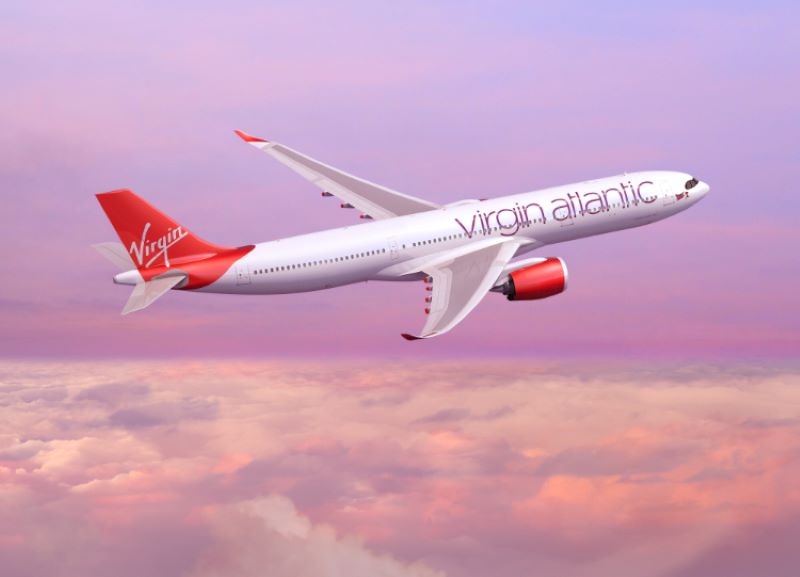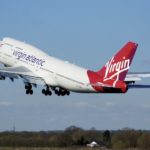
(TAN): Virgin Atlantic has completed a GBP 1.2 billion (USD 1.6 billion) private-only solvent recapitalisation of the airline and holiday business, the airline said.
The restructuring plan has now been sanctioned by the English High Court under Part 26A of the UK Companies Act 2006, and formally recognised in the US court. This final step in the legal process paves the way for the company to continue its efforts to emerge from the COVID-19 crisis a sustainably profitable airline.
Achieving this significant milestone puts Virgin Atlantic in a position to rebuild its balance sheet, restore customer confidence and welcome passengers back to the skies, safely, as soon as they are ready to travel.
[ALSO READ: Reflections from a weekend trip at long last to Le Havre]
Now the restructuring plan has been formally sanctioned by the UK court and given full force and effect in the US, the airline will implement the plan with the support of Virgin Group and Delta, existing creditors and new private investors, keeping Virgin Atlantic flying and providing essential competition and connectivity to customers.
The plan delivers a refinancing package worth GBP 1.2 billion over the next 18 months in addition to the self-help measures already taken: GBP 280 million in cost savings per year, GBP 880 million reduction in fleet capex in the next five years.
Shareholders Virgin Group and Delta are providing GBP 600 million in support over the life of the plan.
The airline continues to have the support of credit card acquirers (Merchant Service Providers) Lloyd’s Cardnet, First Data and American Express.
[ALSO READ: Two Radisson brands under one roof at London Heathrow]
Davidson Kempner Capital Management, a global institutional investment management firm, is providing GBP 170 million of secured financing and the airline’s largest creditors and suppliers are contributing an additional GBP 450 million by way of deferrals.
The outlook for transatlantic flying, which is core to Virgin Atlantic’s business, remains uncertain with US-UK travel curtailed. Until travel returns in greater numbers, survival is predicated on reducing costs further and continuing to preserve cash. On the back of the continued success of Virgin Atlantic Cargo operations, the restart of skeleton passenger operations — with flights to New York JFK, Los Angeles, Hong Kong, Barbados, Shanghai, Miami, New Delhi and Tel Aviv so far — has been an important achievement.
While performance has been encouraging, it is imperative that every sector the airline operates is cash positive.
[ALSO READ: Serviced residence Jumeirah Living Marina Gate opens at Dubai Marina]
Transatlantic flying represents 70% of Virgin Atlantic’s network. Since March 16, it has not been possible for many British nationals to enter the US upon arrival from the UK, Ireland and the Schengen Area. Since June, travellers arriving in the UK from the US have been subject to 14 days quarantine.
The US border closure and UK quarantine measures have been in place for far longer than originally anticipated. As the airline increases passenger operations, the opening of US borders and removal of quarantine is imperative to recovery. These travel restrictions impact on Virgin Atlantic disproportionally given its long-haul operations focussed on the transatlantic. The airline is calling for both UK and US governments to introduce robust passenger testing regimes to lift travel restrictions whilst protecting public health.
[ALSO READ: Flying during COVID -19 safer than you think: IATA video explains why]
Based on current outlook, the airline is planning a scenario in which transatlantic flying from the UK does not extend beyond current skeleton operations until the beginning of 2021. In this scenario, capacity operated across its network in Q4 2020 would be 25% of 2019, and revenues in 2021 could be only 50% of 2019 levels.
Virgin Atlantic CEO Shai Weiss said, “The completion of the private-only, solvent recapitalisation of Virgin Atlantic removes much of the uncertainty we faced and represents a major step forward in our fight for survival. We greatly appreciate the support of our shareholders, creditors and new private investors and together, we will ensure that the airline continues to provide vital connectivity and competition.”




